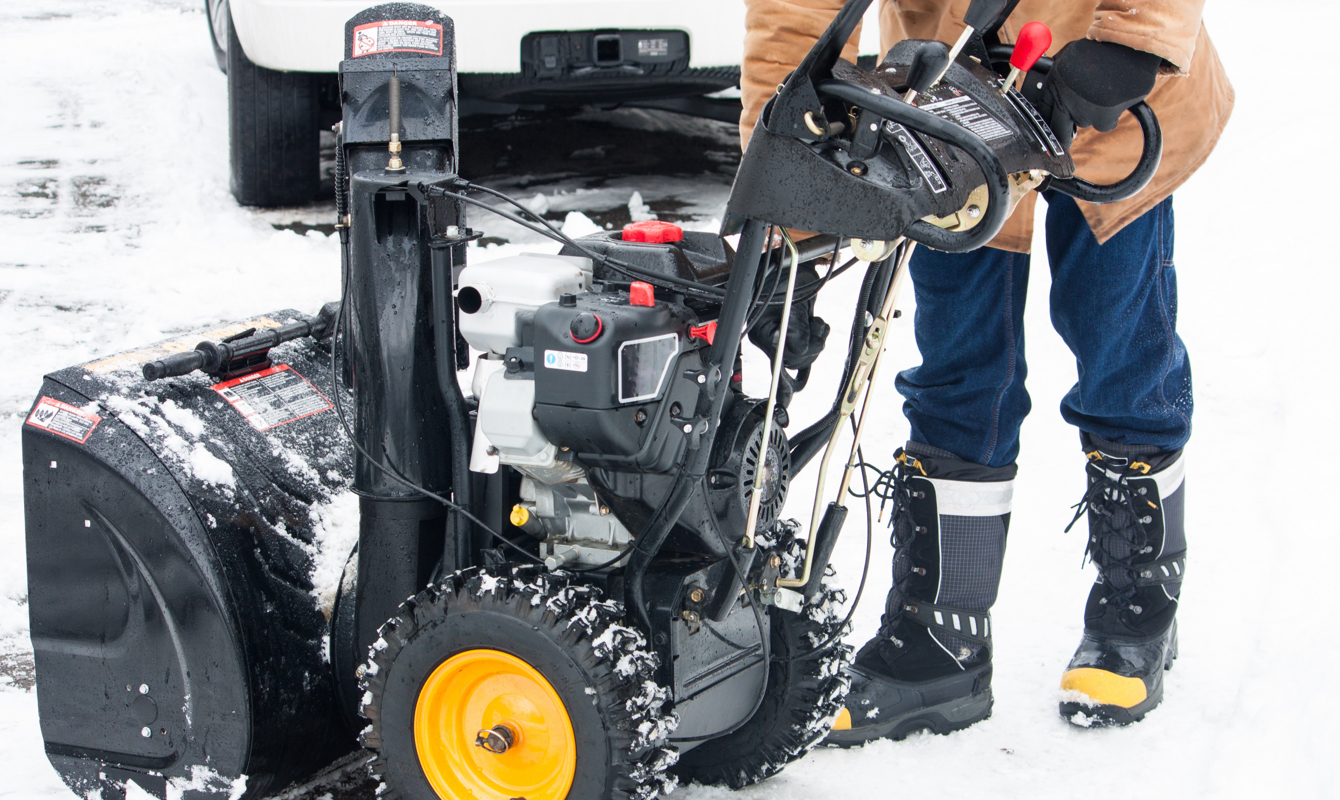Snow Blower Won’t Start?
When the snow is piling up, you need your gas-powered snow blower to start. If you’re lucky, your machine will start with the first pull of the cord. However, since your snow blower may only see sporadic use, it is likely that it may not start. Before you give up and grab a shovel, here are some steps you can take to resolve the problem.

Causes of Snow Blower Engine Trouble
From stale gas to a fouled spark plug, there are many reasons why your snow blower won’t start. Run through these steps to get your snow blower running again.
Initial Checks
Before starting your snow blower, be sure to turn on the fuel valve so the gas can flow to the carburetor and engage the ignition switch. Also don’t forget to set the choke for starting and press the priming bulb if your machine is equipped with one.
Check the Gasoline
Old or stale gas can cause problems with starting your snow blower. If there is old gas in the tank, it should be dumped into a container for proper disposal and fresh fuel should be added. Gasoline will go bad in as little as 30 days, especially when fuel is mixed with ethanol as it is in many areas.
After adding new fuel, check the gas cap. In many small engines, the gas cap also has a vent that serves as the fuel tank ventilation. The vent must be open and free of debris to work properly and supply a sufficient amount of fuel to the carburetor. In addition, consider adding fuel stabilizer to the new gasoline to help it stay fresh longer.
Examine the Spark Plug
A fouled or dirty spark plug can cause your snow blower to not start. It can also work itself loose, causing issues. If the spark plug appears to be seated correctly but the engine doesn’t start, a new one may be in order. For a few dollars, this easy fix can get your machine working again. Be sure to use the correct replacement spark plug designed for your snow blower. For installation tips, check out this article.
Inspect the Fuel Line
Examine the fuel line to ensure that it is flexible and free of damage. Over time, the fuel line can become brittle and leak, preventing fuel from reaching the carburetor. If fuel doesn’t reach the carburetor, it can make it difficult to start the snow blower.
Check the Air Filter
Before air enters the carburetor, it passes through an air filter to remove dust and dirt. During the course of normal operation, the air filter may get clogged with debris preventing it from allowing a sufficient amount of air into the carburetor and making it hard to start. Check the air filter to make sure it is clear and can do its job.
Inspect the Fuel Filter
Designed to keep dirt in the fuel from getting in the carburetor, the fuel filter can become clogged and prevent a sufficient amount of fuel from entering the combustion chamber. To ensure fuel flow, check the fuel filter to make sure it is clear.
What Should I Do If My Snow Blower Still Doesn’t Start?
If none of these suggestions resolves your starting issues, then it’s time to call on a professional mechanic who specializes in small engines.
Learn more about quality spark plugs, and find your part today.
The content in this article is for informational purposes only. You should consult with a certified technician or mechanic if you have questions relating to any of the topics covered herein. Tenneco will not be liable for any loss or damage caused by your reliance on any content.